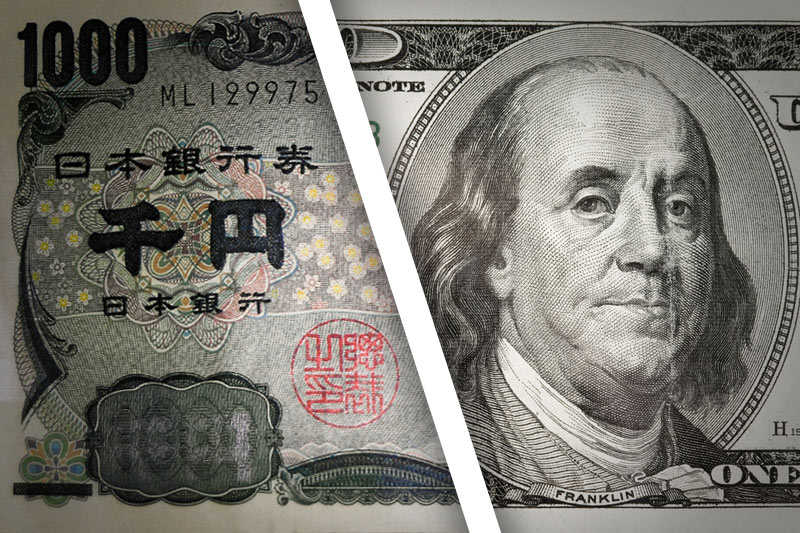Investing.com - The dollar firmed against the yen on Monday after better-than-expected U.S. jobs and consumer-sentiment reports cemented expectations for the Federal Reserve to begin tapering its monthly asset-purchasing program in the near future.
In U.S. trading on Monday, USD/JPY was trading at 103.24, up 0.38%, up from a session low of 102.89 and off a high of 103.32.
The pair was likely to find support at 101.62, Thursday's low, and resistance at 103.38, the high from Dec. 3.
The dollar continued to enjoy support after Friday data revealed that the U.S. economy added 203,000 jobs in November, beating expectations for a 180,000 increase and up from a downwardly revised 200,000 rise the previous month.
In the private sector, 196,000 jobs were added last month compared to expectations for a 180,000 rise, after an increase of 214,000 in October.
The report also said the U.S. unemployment rate fell to 7.0% in November, from 7.3% in October, beating expectations for a downtick to 7.2%.
Also on Friday, the preliminary Thomson Reuters/University of Michigan consumer sentiment index increased to 82.5 in December from 75.1 the previous month, far surpassing expectations for a 76.0 reading.
The data kept expectations firmly in place that the Federal Reserve will begin scaling back its USD85 billion in monthly bond purchases in the coming months, which weaken the dollar to spur recovery.
Earlier Monday, Fed St. Louis President James Bullard said the chances of a Fed decision to taper asset purchases are growing now that the labor market has shown improvement.
“A small taper might recognize labor market improvement while still providing the Committee the opportunity to carefully monitor inflation during the first half of 2014,” Bullard said in prepared remarks of a speech he delivered earlier.
“Should inflation not return toward target, the Committee could pause tapering at subsequent meetings.”
The yen, meanwhile, has come under pressure recently amid expectations for the Bank of Japan to beef up stimulus programs to meet its 2% inflation target by 2015.
Earlier this month, BoJ Governor Haruhiko Kuroda pledged to counter any new downside risks to the bank’s inflation goal, saying the BoJ would act by "adjusting monetary policy without hesitation."
The yen was down against the pound and down against the euro, with GBP/JPY up 0.83% and trading at 169.55 and EUR/JPY trading up 0.62% at 141.82.
On Tuesday, Japan is to publish its BSI manufacturing index and a report on tertiary industry activity.
In U.S. trading on Monday, USD/JPY was trading at 103.24, up 0.38%, up from a session low of 102.89 and off a high of 103.32.
The pair was likely to find support at 101.62, Thursday's low, and resistance at 103.38, the high from Dec. 3.
The dollar continued to enjoy support after Friday data revealed that the U.S. economy added 203,000 jobs in November, beating expectations for a 180,000 increase and up from a downwardly revised 200,000 rise the previous month.
In the private sector, 196,000 jobs were added last month compared to expectations for a 180,000 rise, after an increase of 214,000 in October.
The report also said the U.S. unemployment rate fell to 7.0% in November, from 7.3% in October, beating expectations for a downtick to 7.2%.
Also on Friday, the preliminary Thomson Reuters/University of Michigan consumer sentiment index increased to 82.5 in December from 75.1 the previous month, far surpassing expectations for a 76.0 reading.
The data kept expectations firmly in place that the Federal Reserve will begin scaling back its USD85 billion in monthly bond purchases in the coming months, which weaken the dollar to spur recovery.
Earlier Monday, Fed St. Louis President James Bullard said the chances of a Fed decision to taper asset purchases are growing now that the labor market has shown improvement.
“A small taper might recognize labor market improvement while still providing the Committee the opportunity to carefully monitor inflation during the first half of 2014,” Bullard said in prepared remarks of a speech he delivered earlier.
“Should inflation not return toward target, the Committee could pause tapering at subsequent meetings.”
The yen, meanwhile, has come under pressure recently amid expectations for the Bank of Japan to beef up stimulus programs to meet its 2% inflation target by 2015.
Earlier this month, BoJ Governor Haruhiko Kuroda pledged to counter any new downside risks to the bank’s inflation goal, saying the BoJ would act by "adjusting monetary policy without hesitation."
The yen was down against the pound and down against the euro, with GBP/JPY up 0.83% and trading at 169.55 and EUR/JPY trading up 0.62% at 141.82.
On Tuesday, Japan is to publish its BSI manufacturing index and a report on tertiary industry activity.
